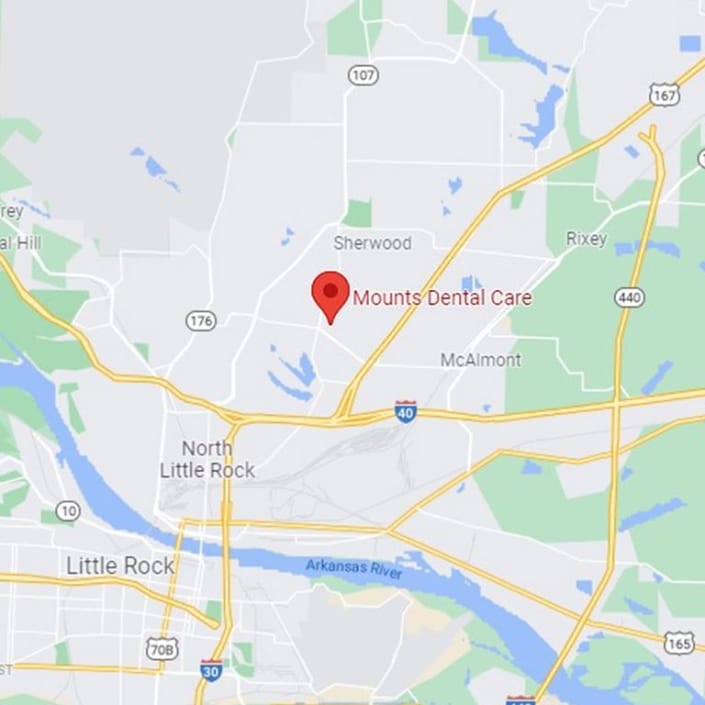How Dentists Treat TMJ Disorder
Do you have a sore jaw or trouble opening and closing your mouth? Issues with your temporomandibular joint (TMJ) can cause this to happen, along with other symptoms. Our dentists in North Little Rock, AR at Mounts Dental Care offer treatment to help ease pain, headaches, and other symptoms of this disorder.
How We Determine Treatment for TMJ
The ways we treat this disorder depend on the underlying cause. You can get TMJ disorder from any of the following causes:
- Clenching or grinding your teeth
- Jaw trauma or injuries
- Misaligned jaw
- Chronic stress
- Arthritis or other conditions that affect the joints
Based on the cause, we’ll come up with a treatment plan that might include any of the following types of treatments.
Mouth Guards
If you have TMJ symptoms from grinding your teeth, we can create a custom-made mouth guard to wear at night. This prevents you from being able to clench your jaws while sleeping, stopping your teeth from grinding together and easing stress in your joint.
Lifestyle Changes
Do you typically chew ice or bite inanimate objects? These habits can put added stress on your teeth and affect your jaw joint. Our dental team can give you advice on changing or stopping these behaviors.
Medication
We can recommend prescription or over-the-counter medication to help ease some TMJ symptoms, such as soreness in your jaw muscles.
Visit Us for TMJ Relief!
Are you struggling with discomfort from TMJ symptoms? We offer treatments that can help ease your pain. At Mounts Dental Care, our dental team provides TMJ treatment in North Little Rock, AR, including mouth guards. We can create a treatment plan that addresses the cause of your symptoms for ongoing relief!







